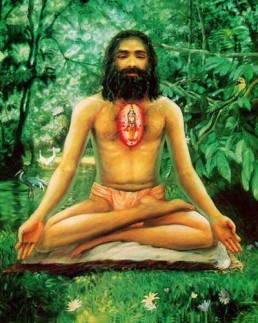Patanjali Yogasutra: Part 2 – Sādhana-pāda – Yoga and its Practice
Patanjali Yogasutra Introduction
Part 1 – Samādhi-pāda – Yoga and its Aims
1.1
1.2
1.3
1.4
1.5
1.6
1.7
1.8
1.9
1.10
1.11
1.12
1.13
1.14
1.15
1.16
1.17
1.18
1.19
1.20
1.21
1.22
1.23
1.24
1.25
1.26
1.27
1.28
1.29
1.30
1.31
1.32
1.33
1.34
1.35
1.36
1.37
1.38
1.39
1.40
1.41
1.42
1.43
1.44
1.45
1.46
1.47
1.48
1.49
1.50
1.51
Part 2 – Sādhana-pāda – Yoga and its Practice
2.1
2.2
2.3
2.4
2.5
2.6
2.7
2.8
2.9
2.10
2.11
2.12
2.13
2.14
2.15
2.16
2.17
2.18
2.19
2.20
2.21
2.22
2.23
2.24
2.25
2.26
2.27
2.28
2.29
2.30
2.31
2.32
2.33
2.34
2.35
2.36
2.37
2.38
2.39
2.40
2.41
2.42
2.43
2.44
2.45
2.46
2.47
2.48
2.49
2.50
2.51
2.52
2.53
2.54
2.55
Part 3 – Vibhūti-Pāda – Powers
3.1
3.2
3.3
3.4
3.5
3.6
3.7
3.8
3.9
3.10
3.11
3.12
3.13
3.14
3.15
3.16
3.17
3.18
3.19
3.20
3.21
3.22
3.23
3.24
3.25
3.26
3.27
3.28
3.29
3.30
3.31
3.32
3.33
3.34
3.35
3.36
3.37
3.38
3.39
3.40
3.41
3.42
3.43
3.44
3.45
3.46
3.47
3.48
3.49
3.50
3.51
3.52
3.53
3.54
3.55
3.56
Part 4 – Kaivalya-pāda – Liberation
4.1
4.2
4.3
4.4
4.5
4.6
4.7
4.8
4.9
4.10
4.11
4.12
4.13
4.14
4.15
4.16
4.17
4.18
4.19
4.20
4.21
4.22
4.23
4.24
4.25
4.26
4.27
4.28
4.29
4.30
4.31
4.32
4.33
4.34

Commentary on Sri Patanjali Yogasutra by Swami Vivekananda
Those Samādhis with which we ended our last chapter are very difficult to attain; so we must take them up slowly. The first step, the preliminary step, is called Kriya-yoga. Literally this means work, working towards Yoga. The organs are the horses, the mind is the rein, the intellect is the charioteer, the soul is the rider, and the body is the chariot. The master of the household, the King, the Self of man, is sitting in this chariot. If the horses are very strong and do not obey the rein, if the charioteer, the intellect, does not know how to control the horses, then the chariot will come to grief. But if the organs, the horses, are well controlled, and if the rein, the mind, is well held in the hands of the charioteer, the intellect, the chariot reaches the goal. What is meant, therefore, by this mortification? Holding the rein firmly while guiding the body and the organs; not letting them do anything they like, but keeping them both under proper control. Study. What is meant by study in this case? No study of novels or story books, but study of those works which teach the liberation of the Soul. Then again this study does not mean controversial studies at all. The Yogi is supposed to have finished his period of controversy. He has had enough of that, and has become satisfied. He only studies to intensify his convictions. Vāda and Siddhānta — these are the two sorts of scriptural knowledge — Vada (the argumentative) and Siddhanta (the decisive). When a man is entirely ignorant he takes up the first of these, the argumentative fighting, and reasoning pro and con; and when he has finished that he takes up the Siddhanta, the decisive, arriving at a conclusion. Simply arriving at this conclusion will not do. It must be intensified. Books are infinite in number, and time is short; therefore the secret of knowledge is to take what is essential. Take that and try to live up to it. There is an old Indian legend that if you place a cup of milk and water before a Rāja Hamsa (swan), he will take all the milk and leave the water. In that way we should take what is of value in knowledge, and leave the dross. Intellectual gymnastics are necessary at first. We must not go blindly into anything. The Yogi has passed the argumentative state, and has come to a conclusion, which is, like the rock, immovable. The only thing he now seeks to do is to intensify that conclusion. Do not argue, he says; if one forces arguments upon you, be silent. Do not answer any argument, but go away calmly, because arguments only disturb the mind. The only thing necessary is to train the intellect, what is the use of disturbing it for nothing? The intellect is but a weak instrument, and can give us only knowledge limited by the senses. The Yogi wants to go beyond the senses, therefore intellect is of no use to him. He is certain of this and, therefore, is silent, and does not argue. Every argument throws his mind out of balance, creates a disturbance in the Chitta, and a disturbance is a drawback. Argumentations and searchings of the reason are only by the way. There are much higher things beyond them. The whole of life is not for school boy fights and debating societies. “Surrendering the fruits of work to God” is to take to ourselves neither credit nor blame, but to give up both to the Lord and be at peace.
Yogasutra – Verse 2.1 – Yogasutra-2.1-tapaḥsvādhyāyeśvara – In Sanskrit with English Transliteration, Translation, Meaning and Commentary by Swami Vivekananda – Yogasutra-2-1
